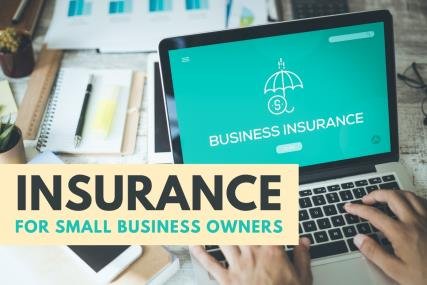Insurance for Small Business Owners: A Comprehensive Guide

As a small business owner, you’re responsible for managing numerous aspects of your operation, from finances to marketing to operations. One critical area that often gets overlooked is insurance. Having the right insurance coverage in place can protect your business from unexpected losses and financial hardship. In this comprehensive guide, we’ll explore the different types of insurance that small business owners should consider and provide valuable tips for choosing the best policies for your specific needs.
Why is Insurance Important for Small Business Owners?
Insurance plays a crucial role in safeguarding your small business. Here’s why it’s essential:
- Risk Management: Insurance helps you manage and mitigate risks that could threaten your business’s financial stability.
- Legal Protection: Insurance can provide legal coverage in case of accidents, injuries, or property damage.
- Business Continuity: In the event of a disaster, insurance can help you recover and resume operations quickly.
- Financial Protection: Insurance can protect your personal assets from business-related liabilities.
Important Insurance Types for Owners of Small Businesses
- General Liability Insurance: This covers bodily injury, property damage, and personal injury claims arising from your business operations.
- Property Insurance: This protects your physical assets, such as your business premises, equipment, and inventory, against loss or damage due to fire, theft, or natural disasters.
- Commercial Auto Insurance: This covers your business vehicles, including trucks, vans, and cars, for accidents, theft, and property damage.
- Workers’ Compensation Insurance: This provides medical benefits and wage replacement for employees injured on the job.
- Professional Liability Insurance (Errors and Omissions Insurance): This covers claims of negligence or professional misconduct.
- Cyber Liability Insurance: This protects your business from data breaches, cyberattacks, and privacy violations.
- Business Interruption Insurance: This covers lost income and expenses if your business is unable to operate due to a covered event.
Choosing the Right Insurance Policies
When choosing insurance plans, take into account the following elements:
- Your Business Needs: Assess your specific risks and determine the types of insurance coverage that are most relevant to your industry and operations.
- Policy Limits: Choose policy limits that adequately protect your assets and liabilities.
- Deductibles: Consider the deductible amounts you can afford in case of a claim.
- Insurance Carriers: Research reputable insurance companies and compare their coverage options, premiums, and customer service.
Tips for Managing Insurance Costs
- Bundle Policies: Consider bundling multiple insurance policies with the same carrier to potentially receive discounts.
- Improve Safety Measures: Implementing safety measures can help reduce your risk and lower insurance premiums.
- Review Your Coverage Regularly: As your business grows and changes, review your insurance coverage to ensure it remains adequate.
Common Insurance Myths Debunked
- I can’t afford insurance: Insurance premiums can be customized to fit your budget.
- My business is too small to need insurance: Even small businesses can face significant risks.
- I have homeowner’s insurance, so I’m covered for my business: Homeowner’s insurance typically doesn’t cover business-related activities.
- I can handle claims myself: Insurance companies have experienced claims adjusters who can help you navigate the process.
Conclusion
Purchasing insurance is crucial for owners of small businesses. By understanding the different types of insurance available and choosing the right policies, you can protect your business from financial risks and ensure its long-term success. Remember to regularly review your insurance coverage and make adjustments as needed to adapt to your changing business needs.
FAQs
- How much does small business insurance cost? Insurance premiums vary depending on factors such as your industry, business size, risk factors, and the specific coverage you need.
- Can I get insurance if my business has a poor risk history? Insurance companies may be more hesitant to provide coverage if your business has a history of claims or legal issues. However, there may be options available, such as specialized insurers or higher premiums.
- Can I cancel my insurance policy at any time? You may be able to cancel your insurance policy, but there may be cancellation fees or penalties depending on your policy terms.
- How often should I review my insurance coverage? It’s recommended to review your insurance coverage annually to ensure it remains adequate for your business needs.